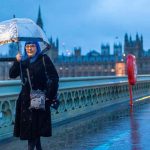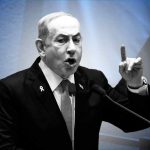
When Jamaican judge Hugh Small, QC, this month burned his ceremonial British judicial wigs in a symbolic protest, it was just one of a series of brewing protests Britain’s royal household should have seen coming before they sent the Duke and Duchess of Cambridge to the Caribbean.
They scheduled an eight-day trip for Prince William and Kate, which began on March 19, beginning with a three-day visit to Belize, then heading to Jamaica before winding up the tour in the Bahamas on March 26.
Part of Queen Elizabeth II’s Platinum Jubilee, celebrating 70 years on the throne, the goodwill trip was designed to convince the former British colonies to stay on as “realms” of the British monarchy amid a rising regional movement towards republicanism.
When Judge Small burned his three judicial wigs on March 14 – sending shockwaves across social media and the legal community – he said Jamaica had the ability to stand on its own.
His protest centred on why a London-based tribunal called the Privy Council continues to be Jamaica’s highest Court of Appeal.
Neighbouring Barbados formally severed relations with the Queen in November, and if Jamaica follows suit it would become only the second Caribbean nation to do so.

Slavery reparations call hits royal visit
By all accounts, William and Kate have been warmly welcomed by hundreds of locals everywhere they go.
But when they touched down in Belize on March 19, a planned trip to the Akte ‘il Ha cacao farm in the Maya village of Indian Creek was cancelled after villagers staged a small protest over land rights.
“The problem is – it’s in Indian Creek village – which has been in open conflict with Fauna & Flora International, which owns an adjoining, contested property,” Belize’s Channel 7 reported.
“More than that, Prince William is a patron of that conservation organisation.”
When they got to Jamaica, things escalated as senior politicians and activists protested to demand reparations for slavery, and they suddenly bore witness to a country with divided loyalty.
Prime Minister Andrew Holness told William and Kate that his Caribbean island of three million people intends to become fully independent of Britain.
M Holness noted there are “unresolved” issues as he greeted the Duke and Duchess of Cambridge in front of a media scrum.
“We are moving on,” he said. “We intend to … fulfil our true ambitions and destiny as an independent, developed, prosperous country.”
And his opposition leader Mark Golding, on the sidelines during a visit to the home of reggae, Trench Town, St Andrews, told the Jamaica Observer that while he was looking forward to meeting the Duke and Duchess, they needed to “reconcile differences with the people of Jamaica”.
“The best way to deal with, it in my view, is to acknowledge some of the things that need to be acknowledged. We don’t have anything against anyone personally right now, but history is there, and we have to reconcile with it and acknowledge it,” Mr Golding said.
“I think that an apology is important and I think it is will help to create a path forward. As a country we are a part of that reparation movement and that is a big issue.”

‘Historical wrongs’: Stand up for Jamaica
Hours before William and Kate arrived in New Kingston, non-profit human rights organisation Stand Up For Jamaica was one of a coalition of 100 groups and leaders who signed a recently published letter addressed to the royal couple demanding an apology and reparations from Britain.
Dignitaries greeted them in Kingston amid a cheering crowd, but they stood alongside dozens of people gathered outside the British High Commission, singing traditional Rastafarian songs and holding banners with the phrase “seh yuh sorry” – a local Patois phrase that urged Britain to apologise.
Stand Up director Carla Gullota said their visit had “brought back to light that many Jamaicans are looking forward to Jamaica becoming a fully independent republic”.
Ms Gullota said she does not support reparations in the form of a cheque, which she called “ridiculous”, but rather Jamaicans should be compensated in other ways with scholarships and access to health care.
“What was not offered in the past should be offered now,” she said.
Jamaica lawmaker Mike Henry has proposed a reparations package of £7.6 billion ($13 billion).
Dr Rosalea Hamilton, an economist and activist who helped organise the rally where demonstrators read out 60 reasons for reparations, said “there are historical wrongs and they need to be addressed”.
Britain ruled Jamaica for more than 300 years, forcing hundreds of thousands of African slaves to toil the land under brutal conditions.
Jamaica gained its independence in August 1962 but remained within the British Commonwealth.

The show must go on, but there’s more anti-royal sentiment ahead
On March 24, the official Twitter account of the royal couple showed a visit to the Shortwood Teachers College in Kingston, “supporting early childhood development”.
They then went on to meet doctors, nurses and staff at Spanish Town Hospital, outside the main city: “They, like healthcare workers the world over, do a vital job in keeping us all safe,” they wrote.
Ahead of their final visit to The Bahamas, the Bahamas National Reparations Committee (BNRC) released a letter with one key message: “The time is now for reparations.”
“By many standards this trip to accommodate the royal family will be seen as a resounding success.
“However, once William and Kate have passed over the newly paved roads, driven by the freshly painted walls, and waved to the schoolchildren who have been pulled out of their classes to stand and watch them go by, what will the Bahamian people be left with?
“We … have been left holding the bag for much of the cost of this extravagant trip. Why are we footing the bill for the benefit of a regime whose rise to ‘greatness’ was fuelled by the extinction, enslavement, colonisation, and degradation of the people of this land? Why are we being made to pay again?
“We are not beholden to the British monarchy in any way and we do not owe them a debt of gratitude for anything – not for our culture, religion, or system of governance.
“It is time now for reparatory justice. The time is now for reparations.”
CNN reported some members of the British media travelling with the royal couple have stated Prince William intends to respond to the growing anti-royal sentiment in a speech on Wednesday local time.
The post ‘An apology is important’: Why the Royal PR tour of the Caribbean has spectacularly derailed appeared first on The New Daily.
Powered by WPeMatico






